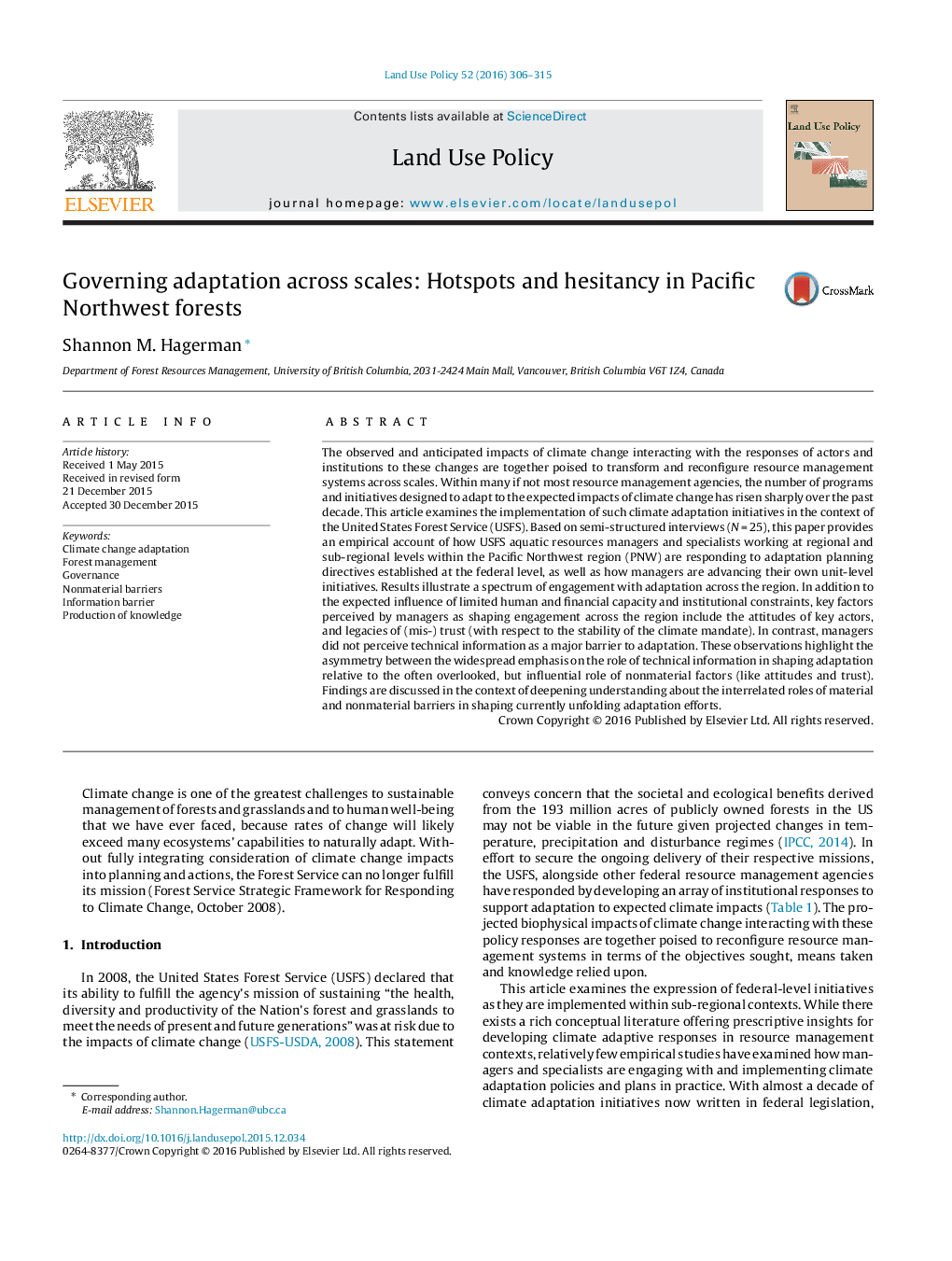| Article ID | Journal | Published Year | Pages | File Type |
|---|---|---|---|---|
| 6547482 | Land Use Policy | 2016 | 10 Pages |
Abstract
The observed and anticipated impacts of climate change interacting with the responses of actors and institutions to these changes are together poised to transform and reconfigure resource management systems across scales. Within many if not most resource management agencies, the number of programs and initiatives designed to adapt to the expected impacts of climate change has risen sharply over the past decade. This article examines the implementation of such climate adaptation initiatives in the context of the United States Forest Service (USFS). Based on semi-structured interviews (NÂ =Â 25), this paper provides an empirical account of how USFS aquatic resources managers and specialists working at regional and sub-regional levels within the Pacific Northwest region (PNW) are responding to adaptation planning directives established at the federal level, as well as how managers are advancing their own unit-level initiatives. Results illustrate a spectrum of engagement with adaptation across the region. In addition to the expected influence of limited human and financial capacity and institutional constraints, key factors perceived by managers as shaping engagement across the region include the attitudes of key actors, and legacies of (mis-) trust (with respect to the stability of the climate mandate). In contrast, managers did not perceive technical information as a major barrier to adaptation. These observations highlight the asymmetry between the widespread emphasis on the role of technical information in shaping adaptation relative to the often overlooked, but influential role of nonmaterial factors (like attitudes and trust). Findings are discussed in the context of deepening understanding about the interrelated roles of material and nonmaterial barriers in shaping currently unfolding adaptation efforts.
Related Topics
Life Sciences
Agricultural and Biological Sciences
Forestry
Authors
Shannon M. Hagerman,
